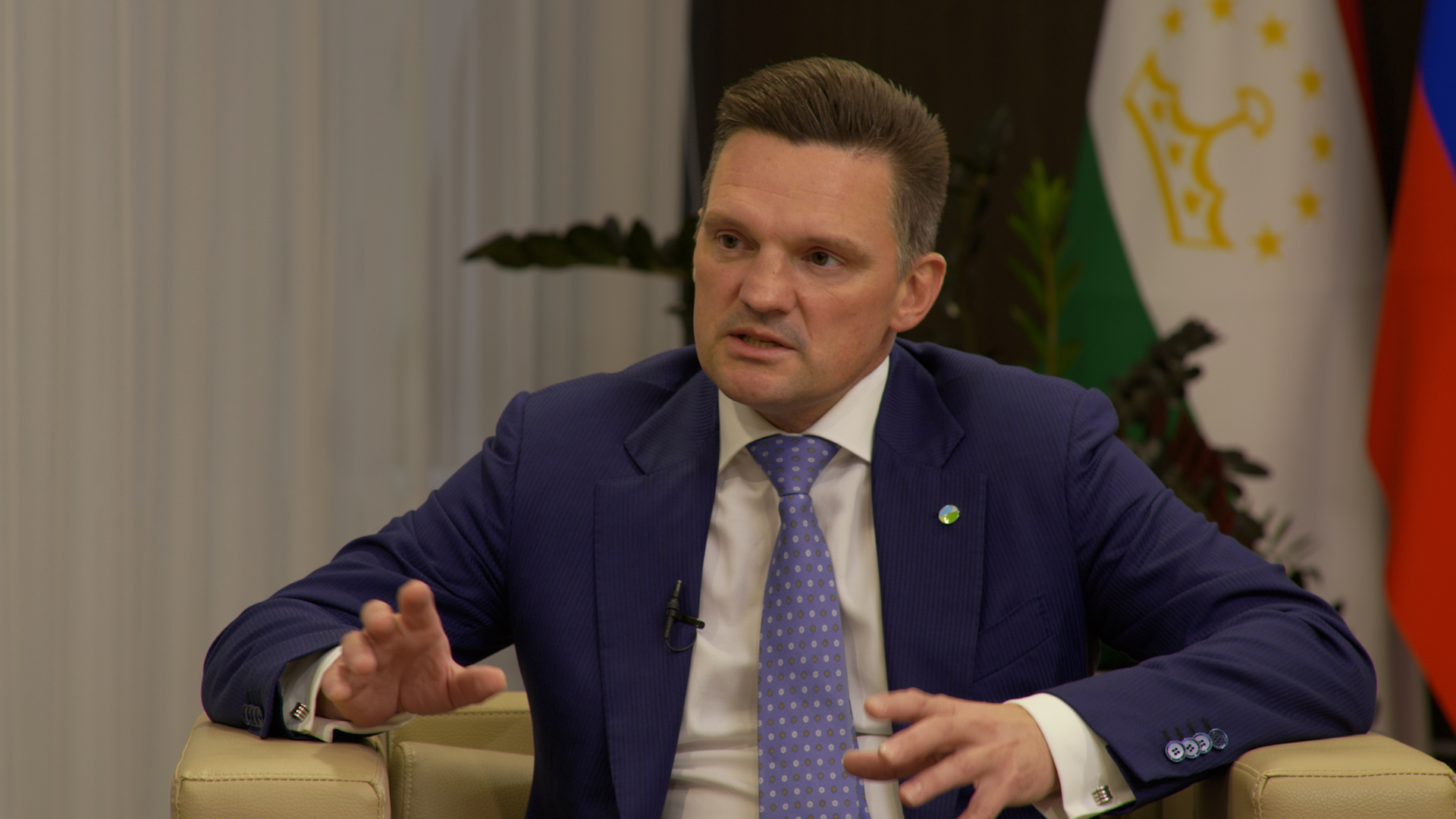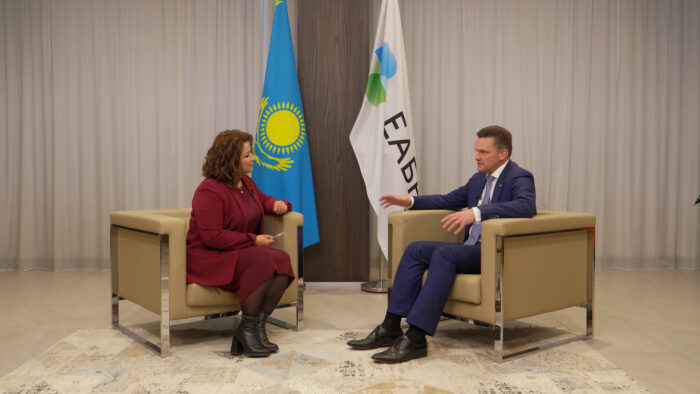ASTANA – Nikolai Podguzov, Chairman of the Management Board of the Eurasian Development Bank (EDB) and member of Kazakhstan’s Foreign Investors Council, shared his perspectives on Kazakhstan’s strategic position in Central Asia, its investment potential, and EDB’s upcoming plans during an interview with The Astana Times YouTube channel.

Nikolai Podguzov, Chairman of the Management Board of the Eurasian Development Bank (EDB) and member of Kazakhstan’s Foreign Investors Council. Photo credit: The Astana Times
Podguzov emphasized Kazakhstan’s pivotal role in the region, describing it as a crossroads for numerous trade and transport routes. He highlighted the significance of enhancing the transport network to improve regional connectivity, particularly given the landlocked or double-landlocked status of most Central Asian countries.
“Kazakhstan plays a central role in Central Asia, located at the intersection of key routes. Developing an effective transport network is essential to unlocking the region’s full potential,” he stated.
Podguzov explained that the EDB has developed a comprehensive concept for a Eurasian transport network. This proposal envisions integrated routes spanning west to east and north to south, with Kazakhstan as a vital hub.

During the interview, Aida Haidar with Nikolai Podguzov. Photo credit: The Astana Times
“Our research shows that being at the crossroads increases the effectiveness of any route by 20%. Combining roadways, railways, ports, and Transcaspian corridors will elevate connectivity for all countries in the region, with significant benefits for Kazakhstan,” he noted.
However, Podguzov acknowledged the challenges of implementing cross-border infrastructure projects.
“Cross-border projects are the most complex to execute because they involve multiple countries and diverse legal systems. To succeed, we need to harmonize these systems and bring them together,” he explained.
EDB has significantly expanded its role in promoting infrastructure, energy, and water management projects across Central Asia. Podguzov highlighted several flagship initiatives and the bank’s ongoing commitment to sustainable development and regional integration.
The EDB has been instrumental in projects like the construction of the Ayagoz–Bakhty railway line and the construction of the China-Kazakhstan road, both of which are critical for improving connectivity. Additionally, the bank has supported the Astrakhan water pipeline, providing clean water to northern Kazakhstan. While not all projects are cross-border, many hold regional significance, such as the Kambar-Ata hydropower plant, which bolsters the energy supply for Kyrgyzstan, Uzbekistan, and Kazakhstan. Smaller initiatives also contribute to enhancing transport and infrastructure in Central Asia.
“For three consecutive years, we’ve invested over $1 billion annually into Kazakhstan’s economy, making EDB the leading provider of non-sovereign investments among international financial organizations in the country,” said Podguzov, noting the bank’s strategic focus.
According to him, Kazakhstan’s reforms since 2019, particularly in attracting and securing investments, have created a fertile ground for economic growth. Podguzov praised President Kassym-Jomart Tokayev’s leadership, noting the president’s ambition for above 6% GDP growth.
“This requires higher investments, faster diversification of the national economy, and a greater pace of reforms,” Podguzov said.
Podguzov shared that the EDB’s investment strategy emphasizes three core priorities: transport and connectivity, water balance and energy, and food security, including agriculture. A central project in this strategy is the Water-Energy Complex of Central Asia, which addresses climate challenges and water scarcity. He underscored the urgency of modernizing regional irrigation systems to prevent a water crisis by 2028. He proposed establishing an industrial cluster in Kazakhstan to produce advanced irrigation equipment, estimating a potential annual market demand of $300 million.
“This initiative could position Kazakhstan as a leader in this sector, contributing to food security and sustainable development goals,” he stated.
Podguzov also discussed the bank’s involvement in energy and industrial modernization projects. Recent and upcoming initiatives include the reconstruction of the Almaty Power Plant, transitioning it from coal to natural gas, and the construction of the Karaganda Power Plant, which is scheduled to begin next year. Other significant projects include the modernization of the Karmet Plant, a large-scale metallurgical initiative, and investments in the Selena Project, a cornerstone of Kazakhstan’s petrochemical industry. Renewable energy projects, primarily focused on solar and wind energy, also feature prominently in the EDB’s portfolio. Podguzov expressed optimism about surpassing the $1 billion annual investment threshold, projecting up to $1.5 billion in investments by 2025.
In addition to physical projects, the EDB emphasizes the importance of “soft” infrastructure. The bank is part of a digital fund created in collaboration with Kazakhstan’s investment agency to create a digital investment platform to showcase high-potential projects to investors.
For full conversation, please watch the interview on The Astana Times Youtube channel.
